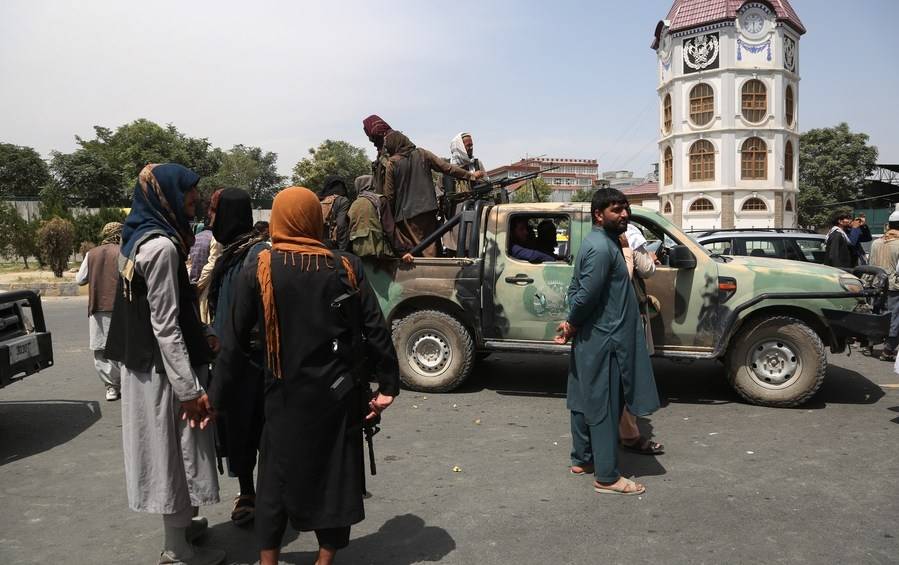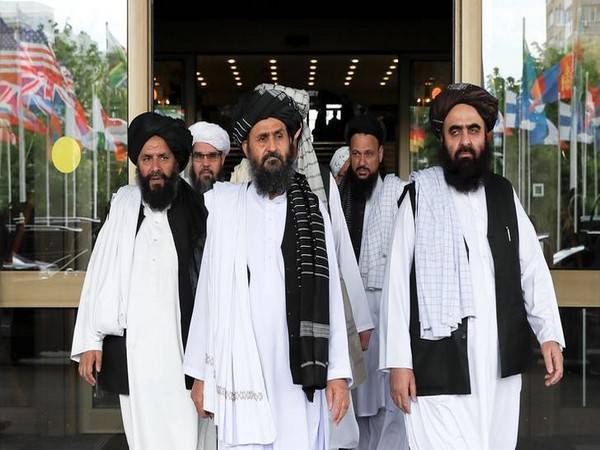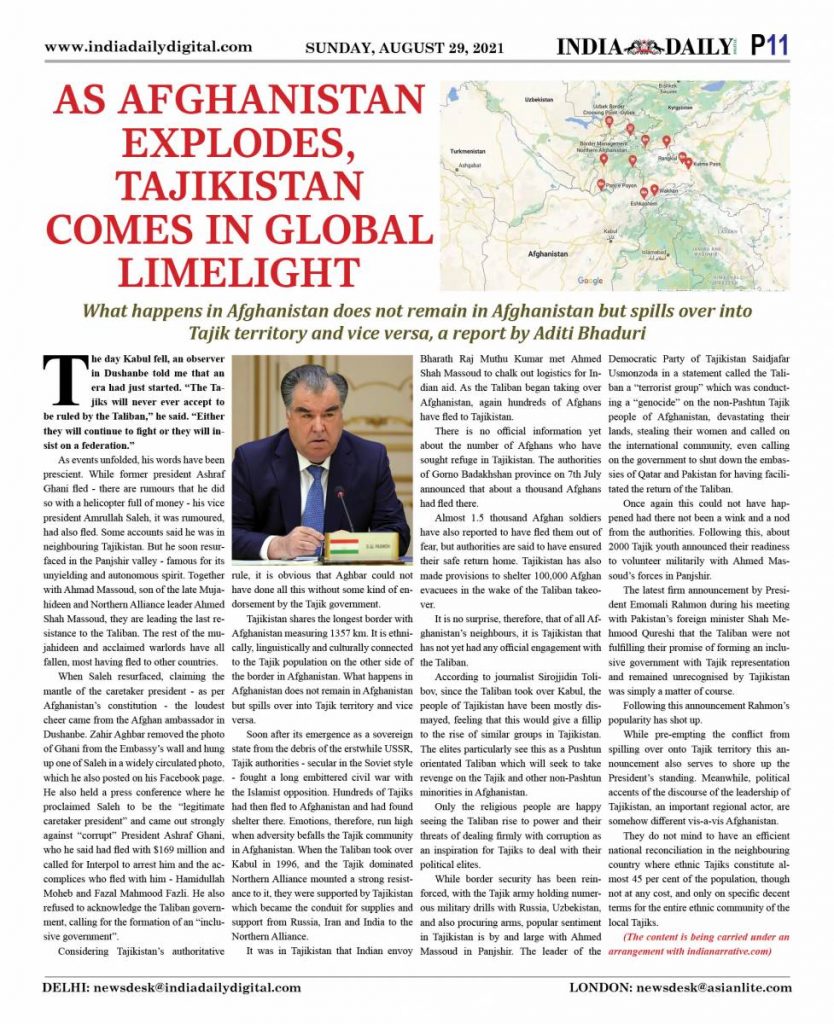What happens in Afghanistan does not remain in Afghanistan but spills over into Tajik territory and vice versa, a report by Aditi Bhaduri
The day Kabul fell, an observer in Dushanbe told me that an era had just started. “The Tajiks will never ever accept to be ruled by the Taliban,” he said. “Either they will continue to fight or they will insist on a federation.”
As events unfolded, his words have been prescient. While former president Ashraf Ghani fled – there are rumours that he did so with a helicopter full of money – his vice president Amrullah Saleh, it was rumoured, had also fled. Some accounts said he was in neighbouring Tajikistan. But he soon resurfaced in the Panjshir valley – famous for its unyielding and autonomous spirit. Together with Ahmad Massoud, son of the late Mujahideen and Northern Alliance leader Ahmed Shah Massoud, they are leading the last resistance to the Taliban. The rest of the mujahideen and acclaimed warlords have all fallen, most having fled to other countries.

When Saleh resurfaced, claiming the mantle of the caretaker president – as per Afghanistan’s constitution – the loudest cheer came from the Afghan ambassador in Dushanbe. Zahir Aghbar removed the photo of Ghani from the Embassy’s wall and hung up one of Saleh in a widely circulated photo, which he also posted on his Facebook page. He also held a press conference where he proclaimed Saleh to be the “legitimate caretaker president” and came out strongly against “corrupt” President Ashraf Ghani, who he said had fled with $169 million and called for Interpol to arrest him and the accomplices who fled with him – Hamidullah Moheb and Fazal Mahmood Fazli. He also refused to acknowledge the Taliban government, calling for the formation of an “inclusive government”.
Considering Tajikistan’s authoritative rule, it is obvious that Aghbar could not have done all this without some kind of endorsement by the Tajik government.
Tajikistan shares the longest border with Afghanistan measuring 1357 km. It is ethnically, linguistically and culturally connected to the Tajik population on the other side of the border in Afghanistan. What happens in Afghanistan does not remain in Afghanistan but spills over into Tajik territory and vice versa.
Soon after its emergence as a sovereign state from the debris of the erstwhile USSR, Tajik authorities – secular in the Soviet style – fought a long embittered civil war with the Islamist opposition. Hundreds of Tajiks had then fled to Afghanistan and had found shelter there. Emotions, therefore, run high when adversity befalls the Tajik community in Afghanistan. When the Taliban took over Kabul in 1996, and the Tajik dominated Northern Alliance mounted a strong resistance to it, they were supported by Tajikistan which became the conduit for supplies and support from Russia, Iran and India to the Northern Alliance.

It was in Tajikistan that Indian envoy Bharath Raj Muthu Kumar met Ahmed Shah Massoud to chalk out logistics for Indian aid. As the Taliban began taking over Afghanistan, again hundreds of Afghans have fled to Tajikistan.
There is no official information yet about the number of Afghans who have sought refuge in Tajikistan. The authorities of Gorno Badakhshan province on 7th July announced that about a thousand Afghans had fled there.
Almost 1.5 thousand Afghan soldiers have also reported to have fled them out of fear, but authorities are said to have ensured their safe return home. Tajikistan has also made provisions to shelter 100,000 Afghan evacuees in the wake of the Taliban takeover.
It is no surprise, therefore, that of all Afghanistan’s neighbours, it is Tajikistan that has not yet had any official engagement with the Taliban.
According to journalist Sirojjidin Tolibov, since the Taliban took over Kabul, the people of Tajikistan have been mostly dismayed, feeling that this would give a fillip to the rise of similar groups in Tajikistan. The elites particularly see this as a Pushtun orientated Taliban which will seek to take revenge on the Tajik and other non-Pashtun minorities in Afghanistan. Only the religious people are happy seeing the Taliban rise to power and their threats of dealing firmly with corruption as an inspiration for Tajiks to deal with their political elites.

While border security has been reinforced, with the Tajik army holding numerous military drills with Russia, Uzbekistan, and also procuring arms, popular sentiment in Tajikistan is by and large with Ahmed Massoud in Panjshir. The leader of the Democratic Party of Tajikistan Saidjafar Usmonzoda in a statement called the Taliban a “terrorist group” which was conducting a “genocide” on the non-Pashtun Tajik people of Afghanistan, devastating their lands, stealing their women and called on the international community, even calling on the government to shut down the embassies of Qatar and Pakistan for having facilitated the return of the Taliban. Once again this could not have happened had there not been a wink and a nod from the authorities. Following this, about 2000 Tajik youth announced their readiness to volunteer militarily with Ahmed Massoud’s forces in Panjshir.
The latest firm announcement by President Emomali Rahmon during his meeting with Pakistan’s foreign minister Shah Mehmood Qureshi that the Taliban were not fulfilling their promise of forming an inclusive government with Tajik representation and remained unrecognised by Tajikistan was simply a matter of course.

Following this announcement Rahmon’s popularity has shot up.
While pre-empting the conflict from spilling over onto Tajik territory this announcement also serves to shore up the President’s standing. Meanwhile, political accents of the discourse of the leadership of Tajikistan, an important regional actor, are somehow different vis-�-vis Afghanistan. They do not mind to have an efficient national reconciliation in the neighbouring country where ethnic Tajiks constitute almost 45 per cent of the population, though not at any cost, and only on specific decent terms for the entire ethnic community of the local Tajiks.
According to Valentin Yakushev, professor of Political Science at the Kiev-based National University of Life and Environmental Sciences of Ukraine who tracks CIS politics, “the tough anti-Taliban rhetoric of the President of Tajikistan is based on two-layered logic: for “internal consumption” in Tajikistan – (to project himself as) a strong man, the Father of the Nation must always be strong and determined to protect the nation world-wide, and secondly, in the “external message” – that is, Tajiks everywhere, and especially in Afghanistan, must be sure that they always can count on the support of their kin, people and the state (of Tajikistan).
Thus, through Afghanistan perhaps, Tajikistan may find the opportunity to make its presence more visible on the world stage. For surely Rahmon’s firm stand is resonating in many world capitals.
(The content is being carried under an arrangement with indianarrative.com)

